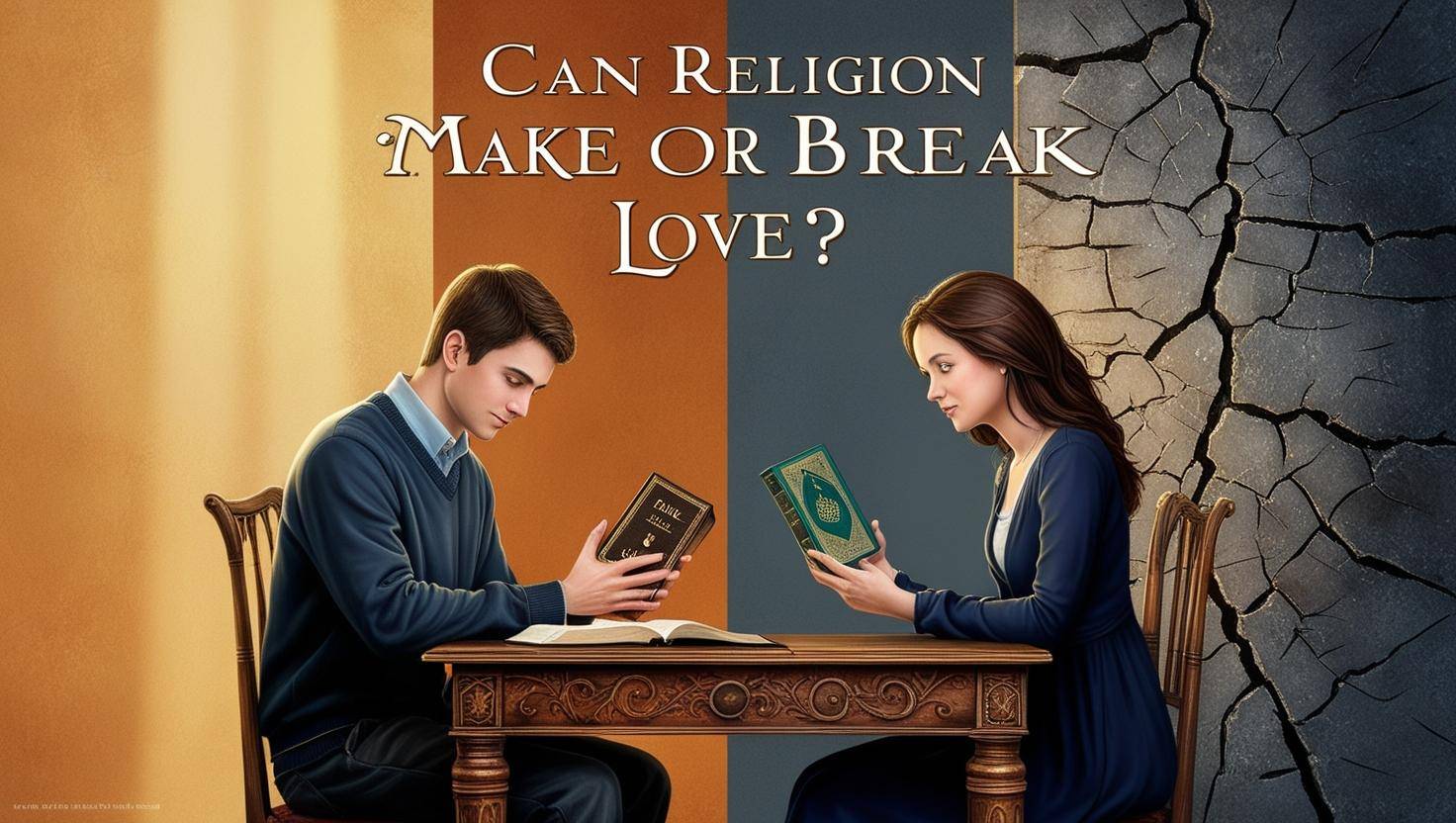Introduction
Religion plays a significant role in shaping personal beliefs, values, and behaviors, making it a powerful influence in romantic relationships. Whether partners share the same faith or come from different religious backgrounds, their beliefs can impact how they communicate, resolve conflicts, make life decisions, and build intimacy. Religion can either strengthen a relationship through shared values and moral guidance or create challenges when differences arise.
This article explores the various ways religion affects romantic relationships, including compatibility, conflict resolution, cultural influences, family involvement, and long-term commitment. By understanding these dynamics, couples can navigate their differences and build stronger, more fulfilling relationships.
1. The Role of Religion in Relationship Compatibility
a) Shared Religious Beliefs and Relationship Satisfaction
Partners who share the same religious beliefs often experience higher relationship satisfaction. A common faith provides a shared moral foundation, similar values, and mutual support in spiritual practices. Research suggests that couples who pray together, attend religious services, or practice religious traditions tend to have stronger emotional bonds and better communication.
b) Challenges in Interfaith Relationships
Interfaith relationships—where partners come from different religious backgrounds—can introduce challenges, such as differing views on worship, lifestyle choices, and raising children. While some couples successfully navigate these differences, others may struggle with fundamental disagreements that affect their emotional connection.
c) The Importance of Religious Tolerance
Religious tolerance is key to making interfaith relationships work. Couples who respect each other’s beliefs and find common ground tend to experience less conflict and more harmony in their relationship. Open-mindedness and compromise play crucial roles in overcoming religious barriers.
2. Religious Influence on Relationship Expectations
a) Views on Marriage and Commitment
Many religions emphasize the sanctity of marriage, promoting values such as loyalty, fidelity, and long-term commitment. Partners who follow religious teachings may prioritize marriage over casual relationships and view divorce as a last resort. In contrast, differing religious beliefs about marriage can create tension if one partner values traditional commitment while the other has a more liberal perspective.
b) Gender Roles and Relationship Dynamics
Religious teachings often define specific roles for men and women in relationships. Some religions advocate for traditional gender roles, where the man is seen as the provider and leader, while the woman focuses on nurturing and caregiving. Other religious interpretations promote gender equality and partnership. Couples with different perspectives on gender roles may experience conflicts regarding household responsibilities, decision-making, and career aspirations.
c) Premarital Relationships and Sexual Ethics
Religious beliefs also shape attitudes toward premarital relationships and sexual behavior. Some faiths encourage abstinence until marriage, while others have more flexible views on intimacy. Conflicting beliefs about physical intimacy, cohabitation, and moral conduct can affect the stability and progression of a romantic relationship.
3. Religious Practices and Their Impact on Relationships
a) The Role of Prayer and Worship
Couples who engage in shared religious practices, such as praying together or attending religious services, often report higher relationship satisfaction. Spiritual connection fosters emotional intimacy, helps couples navigate challenges, and provides a sense of purpose in the relationship.
b) Religious Celebrations and Traditions
Religious traditions, such as holidays, rituals, and fasting periods, can either bring couples closer or create friction if their practices differ. Partners who embrace each other’s religious customs may strengthen their bond, while those unwilling to participate may experience strain in their relationship.
c) The Impact of Religious Leaders and Communities
Religious leaders and communities can play a significant role in shaping relationship dynamics. Some couples seek guidance from religious mentors, while others may face external pressure from their faith community regarding whom they should date or marry. Religious expectations from family and community members can sometimes create additional stress for couples.
4. Conflict Resolution and Religion
a) Using Religious Teachings to Resolve Disputes
Many religions emphasize forgiveness, patience, and compassion in resolving conflicts. Couples who rely on their faith to guide them through disagreements often find peaceful resolutions and maintain emotional stability in their relationships.
b) The Role of Religious Differences in Conflict
When religious beliefs clash, conflicts may arise over parenting styles, moral values, and lifestyle choices. Interfaith couples or those with different levels of religious commitment may struggle with disagreements on major life decisions, such as where to worship, how to raise children, or which traditions to follow.
c) Mediation Through Religious Counseling
Religious counseling can help couples address conflicts by providing faith-based guidance. Many religious institutions offer counseling services that emphasize spiritual solutions to relationship problems. Seeking advice from religious leaders or attending faith-based relationship workshops can help partners strengthen their bond.
5. Religion and Family Influence on Relationships
a) Parental Expectations and Religious Backgrounds
Family involvement plays a major role in romantic relationships, especially when religious traditions are deeply rooted. Parents and relatives may have strong opinions about whom their children should date or marry, leading to potential conflicts between personal choices and family expectations.
b) The Pressure to Follow Religious Traditions
In some cultures, religious traditions dictate whom individuals can marry, often discouraging relationships with those outside their faith. This can lead to challenges in interfaith relationships, where one or both partners may feel pressure to convert or compromise their beliefs.
c) The Role of Religion in Raising Children
Religious beliefs often influence parenting styles and decisions about raising children. Couples may face challenges when deciding on religious education, baptism, circumcision, or participation in religious ceremonies. If partners have different faiths, they must navigate these decisions carefully to ensure harmony within the family.
6. The Long-Term Impact of Religion on Romantic Relationships
a) Strengthening Long-Term Commitment
For many couples, shared religious beliefs contribute to long-term relationship stability. Faith provides a moral compass, encourages resilience in difficult times, and reinforces the importance of love and commitment.
b) Divorce and Religious Perspectives
Religion often discourages divorce and promotes reconciliation. However, in cases of irreconcilable differences, religious teachings may either provide support for separation or impose guilt and pressure to stay together. Religious differences can also contribute to marital stress, leading to a higher likelihood of separation if not managed properly.
c) Personal Growth and Spiritual Bonding
Many couples find that their faith deepens their emotional connection and personal growth. Engaging in religious activities together, such as charity work, meditation, or scripture study, can help partners build a meaningful and fulfilling relationship.
Conclusion
Religion is a powerful force in romantic relationships, influencing compatibility, expectations, conflict resolution, and long-term commitment. While shared faith can strengthen a couple’s bond, differences in religious beliefs can create challenges that require mutual understanding, respect, and compromise.
For couples navigating religious differences, open communication, tolerance, and willingness to embrace each other’s beliefs are essential. Whether partners share the same faith or come from different religious backgrounds, fostering a relationship built on love, respect, and shared values will lead to a successful and fulfilling partnership.
By understanding the impact of religion on relationships, couples can make informed decisions and create a strong foundation for lasting love.


